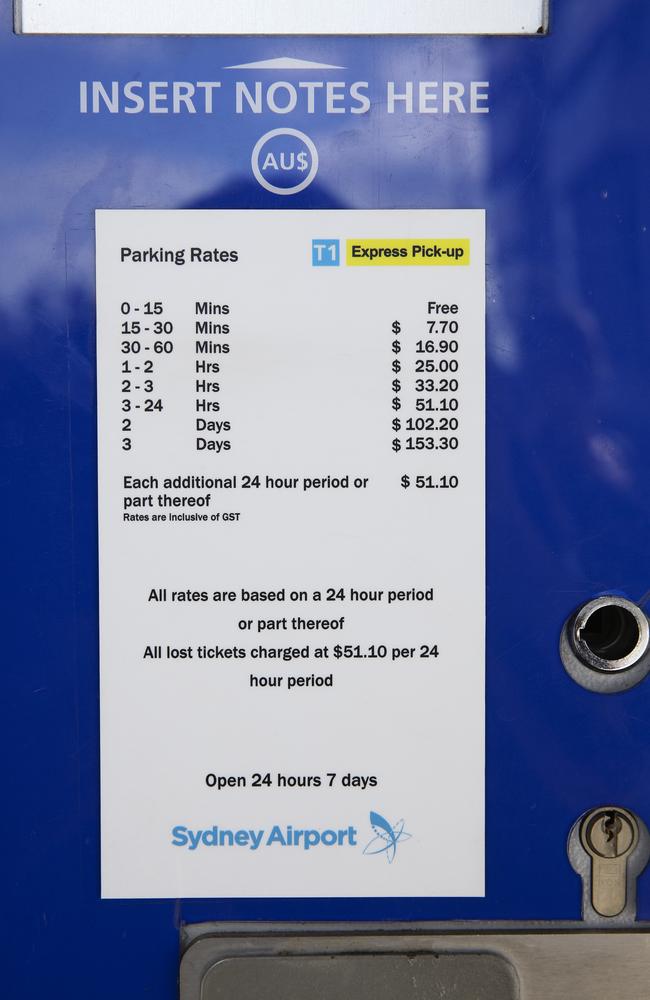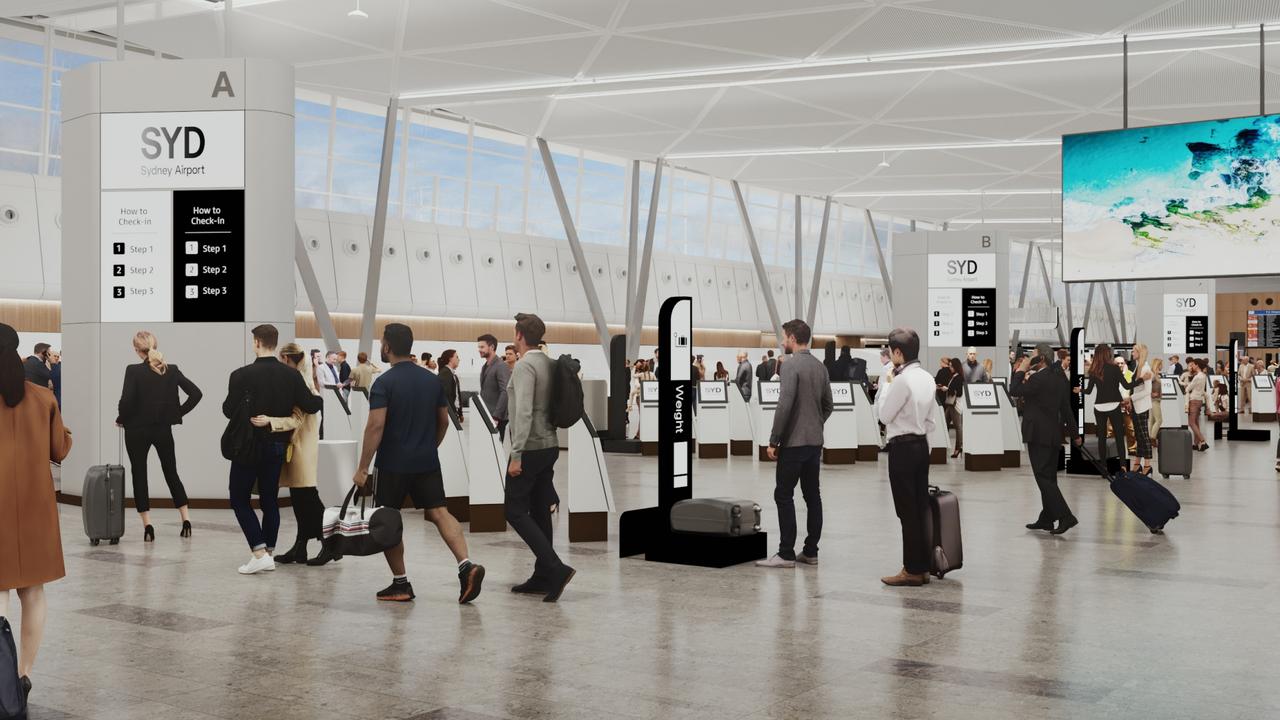$58.42 for four hours parking: Airports raking in sky-high parking profits, ACCC report shows
AUSTRALIA’S airports are gouging motorists and making off like bandits, with a new report revealing just how bad it is.
Travel
Don't miss out on the headlines from Travel. Followed categories will be added to My News.
PARKING your car at Sydney Airport costs as much as a plane ticket to Melbourne.
Australia’s major airports are raking in eye-watering profits from their car parks, with Sydney, Melbourne, Brisbane and Perth collectively earning $280 million in 2016-17.
Sydney Airport was the biggest winner last year, notching a profit of $97 million off revenue of just $134.8 million — an astonishing profit margin of 71.9 per cent, according to the Australian Competition and Consumer Commission’s (ACCC) latest Airport Monitoring Report.
Melbourne’s Tullamarine Airport earned $86.7 million profit off revenue of $145.1 million, Brisbane earned $63.7 million off revenue of $93.5 million, and Perth made $33 million off revenue of $63 million.
“It is not surprising that the airports are so profitable, given that they face little competitive pressure and no price regulation,” ACCC chairman Rod Sims said in a statement.
In 2016-17, car parking accounted for between 9.5 per cent and 15.6 per cent of each airport’s total revenue, but between 21.2 per cent (Sydney) and 32.3 per cent (Melbourne) of each airport’s total profit.
Sydney had the highest drive-up prices, with motorists forced to fork out $17.33 for between 30 and 60 minutes, compared with $15.06 in Melbourne, $14.05 in Brisbane and $10.83 in Perth.
Drivers who stay longer than four hours were slugged $58.42 in Sydney, $57.76 in Melbourne, $53.02 in Brisbane and $40.81 in Perth. According to Webjet, flights from Sydney to Melbourne start at $59.
“The downside of parking at any of Australia’s major airports is that motorists fall victim to a service that has control of the whole market,” said Choice spokeswoman Stefanie Menezes.
“Airport parking is a clear example of a monopoly enterprise. Travellers who want to take advantage of the convenience tend to lose out because monopolies can get away with charging sky-high prices, and there’s no incentive to provide a quality service.
“While it’s not exactly the deal of the century, motorists who need to park at the airport should plan ahead. Booking a car spot online can mean big savings over what you would otherwise pay, especially if you intend to leave your car at the airport long term.”
Mr Sims said booking online could save “around 20 per cent or more on long-term parking at the airport, while choosing an independent carpark near the airport could save you about 40 per cent”.

According to the report, an average of 32,839 cars entered the four airport carparks last year, with Sydney recording 11,856 per day, Melbourne 8729, Brisbane 6681 and Perth 5573.
All airports except Melbourne recorded falls in daily throughput, continuing a gradual decline in recent years as fed-up motorists find other ways to get to and from the airport. Lower car numbers were reflected in lower revenues and operating profits for Sydney and Perth, while Brisbane and Melbourne increased in both measures.
Sydney parking revenue and profits were down 0.9 per cent and 2.5 per cent respectively, Perth was down 2.5 per cent and 8.1 per cent, while Melbourne was up 5.4 per cent and 6.7 per cent, and Brisbane was up 3.3 per cent and 6.6 per cent.
Meanwhile, profits from aeronautical activities also increased last year, with the four airports earning a combined $757.6 million in operating profits, up 9.9 per cent on the previous year. Sydney earned $360.8 million, Melbourne earned $182 million, Brisbane earned $136 million and Perth earned $78.8 million.
Sydney Airport earned $18.3 per passenger in aeronautical revenue, up 4.4 per cent, Perth earned $15.8 per passenger, up 7.2 per cent, Melbourne earned $12.4 per passenger, up 5.7 per cent, and Brisbane earned $12.6, up 1.1 per cent.
“Profits per passenger have also risen at each of the four airports and travellers are paying for this through higher ticket prices,” Mr Sims said.
“We remain concerned that the current regulatory regime which is limited to monitoring the covered airports, doesn’t constrain the market power of four of Australia’s major airports. Unconstrained monopolies often have an incentive and ability to charge excessive prices while lacking strong incentives to improve services.”
Overall passenger numbers across the four airports grew by 3 per cent last financial year, largely due to a 6.7 increase in international passengers compared with just 0.9 per cent growth in domestic passengers.
“The four airports are handling 30 million passengers a year more today than they did a decade ago,” Mr Sims said. “But we are pleased the monitored airports appear to be dealing with the challenge of congestion, and three of the four airports are in the process of either constructing or planning a new runway.”
Based on data analysis and user feedback, Perth and Brisbane were rated as “good” for overall service quality on aeronautical and car parking operations, with Perth overtaking Brisbane this year, while Melbourne and Sydney were rated at the top end of “satisfactory”.
“It is clear that Perth Airport’s investment program over the past few years has significantly improved the quality of the airport in the eyes of both airlines and passengers,” Mr Sims said.
Originally published as $58.42 for four hours parking: Airports raking in sky-high parking profits, ACCC report shows



